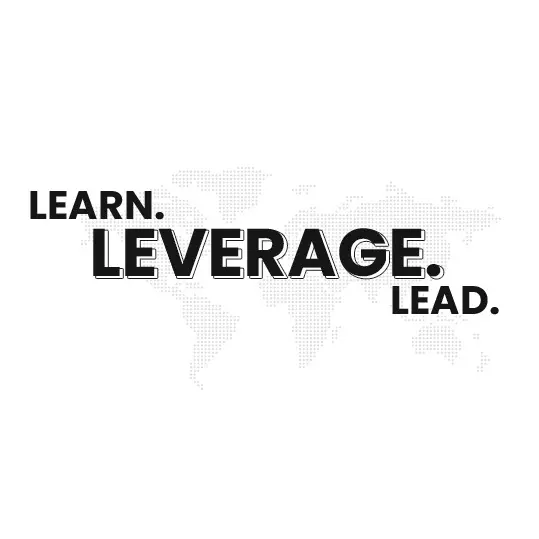
Online MBA in Business Analytics
Analytics Leadership Unleashed through Business Analytics: Online MBA Journey
Who Should Consider Pursuing an Online MBA in Business Analytics?
Eligibility Criteria
Comprehensive Curriculum: Online MBA in Business Analytics
Core Business Analytics Subjects
Specializations
- Advanced techniques in predictive modeling.
- Machine learning algorithms and applications.
- Data science methodologies for business insights.
- Tools and technologies for business intelligence.
- Data visualization and storytelling.
- Analytics-driven decision support systems.
- Managing and analyzing large-scale datasets.
- Hadoop, Spark, and other big data technologies.
- Extracting actionable insights from big data.
- Analyzing consumer behavior and market trends.
- Customer segmentation and targeting.
- Marketing campaign analytics.
Admission Journey: Online MBA in Business Analytics
Initiate the admission process by accessing the online application form on the official webpage of the MBA in Business Analytics program, typically through platforms like Jaro Education.
Ensure all necessary documents, such as academic transcripts, letters of recommendation, and a well-crafted Statement of Purpose (SOP), are prepared for submission.
Check and fulfill the program's admission requirements, including educational qualifications and any relevant work experience.
Most MBA in Business Analytics programs generally require candidates to hold a bachelor's degree in a related field.
Submit academic transcripts and certificates from previous institutions as proof of your educational background.
Some programs may require official transcripts to be directly sent from the issuing institutions.
Provide letters of recommendation from professors, employers, or professionals who can vouch for your academic and/or professional qualifications.
These letters play a crucial role in enhancing your application.
Craft a compelling Statement of Purpose (SOP) outlining your motivations, career goals, and the reasons behind your pursuit of an MBA in Business Analytics.
Submit a detailed resume or curriculum vitae (CV) highlighting work experience, academic achievements, and relevant extracurricular activities.
Proceed with the enrollment process by paying the required application fee and the booking amount.
Follow the payment instructions provided by the program to ensure the smooth processing of your application.
Prepare for an interview, as it is a common requirement for most MBA in Business Analytics programs.
Thoroughly research the program and practice responses to common interview questions. The interview is an opportunity for the admissions committee to understand your goals and motivations better.
Following the submission of all application materials, the admissions committee meticulously reviews your application.
Patience during this phase is key, as the evaluation process may take some time.
Projected Salary for Profiles After MBA
Designation & its average salary in India | Average Annual Salary (INR) |
Systems Business Analyst | INR 8,83,255 |
Data Business Analyst | INR 7,36,376 |
Process Business Analyst | INR 6,00,000 |
Technical Business Analyst | INR 8,00,000 |
IT Business Analyst | INR 7,20,000 |
Operations Business Analyst | INR 5,33,600 |
Critical Skills for Individuals Pursuing MBA in Business Analytics
Top Career Paths After MBA in Business Analytics
Bespoken Online MCom Degrees
Ranking & Accreditations
Career Preps
Identify your strengths, weaknesses, and interests to find a career path that management suits you.
Research different career options and job prospects before making a decision.
Develop a professional resume and cover letter that highlight your skills and experiences.
Build a strong professional network through networking events and social media platforms.
Prepare for interviews by researching the company and practising common interview questions.
Stay up-to-date with industry trends and developments to remain competitive in your field.
Seek feedback from mentors and colleagues to improve your skills and performance continuously.
Consider upskilling through additional courses or certifications to stay relevant in the job market.
Maintain a positive attitude and be open to new opportunities and challenges.
Navigate Through Our Yardstick of Success







Seeking Career Guidance or Advice?
The Jaro Advantage: Your Gateway to Career Success

- Unparalleled career guidance and support
- Dedicated student support
- Immersive and lifelong learning experiences

- Learn from the best-suited academic, faculty, and industry mentors
- Be a part of discussions and forums for enhanced learning
- Leverage peer-to-peer learning experience

- Extensive Alumni Network of Professionals
- Access to alumni events & other benefits
- Stay up to date with the latest insights from your alma mater
Academicians Partners
USA & Singapore
Institutes & Universities
Institutes & Universities
Jaro Connect— Alumni Portal Enriching #LifeLongLearningExperience

FAQs
An MBA in Business Analytics is a specialized program that combines business administration principles with advanced analytics techniques. It focuses on utilizing data-driven insights to make strategic decisions, optimize business processes, and gain a competitive advantage in the marketplace.
Yes, an MBA in Business Analytics is considered a highly valuable and strategic option. In today’s data-driven business environment, professionals with expertise in business analytics are in high demand, making this specialization a lucrative and rewarding choice.
In India, as per Glassdoor, the national average salary for an MBA business analyst is ₹7,00,000. This figure represents the typical annual earnings for professionals in this role across the country.
The qualification for an MBA in Business Analytics typically requires a bachelor’s degree from a recognized institution. Some programs may prefer candidates with a background in business, mathematics, statistics, or related fields. Work experience and proficiency in quantitative skills may also be considered.
Yes, an MBA in Business Analytics is in high demand as organizations increasingly recognize the importance of leveraging data for strategic decision-making. Professionals with skills in business analytics are sought after across various industries for their ability to extract valuable insights from data.
The entrance exam requirement for an MBA in Business Analytics varies by institution. While some programs may accept alternative assessments or consider work experience, many reputable institutions often require candidates to take standardized entrance exams like GMAT or GRE.
Individuals with an MBA in Business Analytics can apply to a wide range of companies, including tech giants, consulting firms, financial institutions, e-commerce companies, healthcare organizations, and more. Companies such as Google, Amazon, McKinsey, and IBM actively seek professionals with business analytics expertise.
While coding skills may not be a strict requirement for all MBA in Business Analytics programs, having a basic understanding of coding languages such as Python or R can be beneficial. Some roles in business analytics may involve coding for data analysis and modeling.
The choice between an MS in Business Analytics and an MBA in Business Analytics depends on individual career goals. An MS is more specialized and suitable for those seeking technical roles, while an MBA provides a broader business perspective, making it suitable for managerial and leadership roles.
Skills required for an MBA in Business Analytics include strong analytical and quantitative abilities, proficiency in data analysis tools, effective communication, problem-solving, and business acumen. These skills enable professionals to derive meaningful insights from data and make strategic decisions.
Several prominent companies recruit individuals with a degree of MBA in Business Analytics, including consulting firms (McKinsey, BCG), technology companies (Google, Amazon, Microsoft), financial institutions, healthcare organizations, and e-commerce platforms. These companies value the analytical and strategic skills of business analytics professionals.
The ideal time to pursue an MBA in Business Analytics depends on individual career goals and experience. Many professionals opt for this specialization after gaining a few years of work experience to enhance their skills and qualify for more advanced roles in analytics and management.
After completing an MBA in Business Analytics, individuals can pursue various roles such as Data Analyst, Business Intelligence Manager, Analytics Consultant, Data Scientist, and Operations Analyst. The degree opens doors to leadership positions that require a combination of business acumen and analytical expertise.






